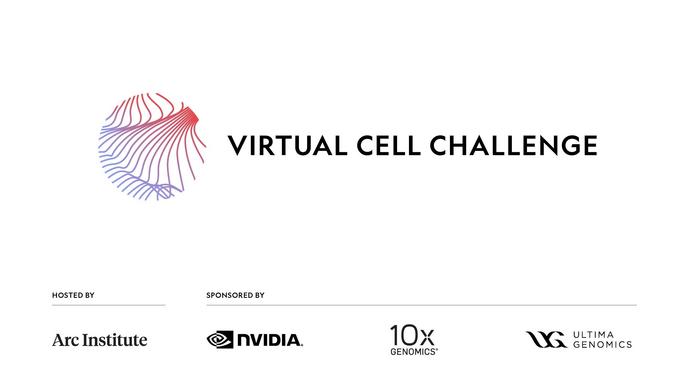In the realm of modern biology and artificial intelligence, a groundbreaking initiative is poised to reshape our understanding of cellular behavior through the introduction of the Virtual Cell Challenge. Launched by the Arc Institute, this competition invites scientists and researchers to harness the power of machine learning to predict how cells respond to various genetic perturbations. With an enticing grand prize of $100,000, the challenge not only aims to create a powerful machine learning model but also seeks to generate high-quality datasets, which are essential for fostering innovation at the intersection of AI and biology.
At its heart, the Virtual Cell Challenge is an ambitious endeavor that recognizes the urgency of integrating cutting-edge technology in biological research. Arc Institute has meticulously curated a dataset comprising single-cell transcriptomics from 300,000 H1 human embryonic stem cells, meticulously altered with 300 genetic modifications. This data will be pivotal throughout the competition, divided into distinct phases for model fine-tuning, validation, and rigorous testing. Competitors will be tasked with analyzing gene expression data from over half a billion cells, included in the Arc Virtual Cell Atlas, and other publicly available datasets, honing their models to predict gene activity shifts accurately when targeted genes are silenced.
The competition’s design reflects a profound understanding of the unique challenges researchers face in cellular modeling. Notably, the inaugural challenge embraces a few-shot learning paradigm. By providing a training subset of H1 hESCs, competitors are forced to contend with the complexities of generalizing their models to new cell contexts. This aspect is critical, as the ultimate effectiveness of AI-driven models hinges on their adaptability and predictive accuracy in real-world scenarios, such as drug discovery and therapeutic interventions.
.adsslot_Lz0UBsfpDc{ width:728px !important; height:90px !important; }
@media (max-width:1199px) { .adsslot_Lz0UBsfpDc{ width:468px !important; height:60px !important; } }
@media (max-width:767px) { .adsslot_Lz0UBsfpDc{ width:320px !important; height:50px !important; } }
ADVERTISEMENT
Furthermore, the Virtual Cell Challenge emphasizes the importance of rigorous evaluation frameworks within the nascent field of virtual cells. As the rapid advancements in single-cell technologies and machine learning continue to transform biological research, it has become increasingly challenging to compare different modeling approaches because of inconsistent evaluation metrics and varying dataset quality. The Arc Institute’s challenge is set to provide a consistent benchmarking method that will streamline the assessment of virtual cell models, fostering a scientific environment where innovation can thrive.
Arc’s Executive Director and Co-Founder, Silvana Konermann, has articulated the significance of this evaluation framework by stating the necessity for objective benchmarks in testing and comparing model performance. The future of biological research hinges on the ability to accurately capture and simulate dynamic cellular responses, and the Virtual Cell Challenge aims to lay the groundwork for standardized methodologies that the entire research community can adopt. This will not only enhance the credibility of AI models but also position them as formidable allies in understanding complex biological processes.
As the competition gears up, participation is open to a diverse array of contributors, including individuals, academic teams, biotech companies, and independent research organizations. It invites those with a solid grounding in computational modeling and single-cell biology to engage and contribute actively to this exciting frontier. Additionally, incentives for entrants extend beyond the monetary prizes, as the challenge fosters an environment of collaboration and mutual advancement, analogous to the transformative CASP competitions that revolutionized protein structure prediction over the past two decades.
Equally crucial to the Virtual Cell Challenge’s vision is the support from notable industry players such as NVIDIA, 10x Genomics, and Ultima Genomics. These partnerships underscore the importance of collaboration between the private sector and academic research, positioning the competition as a catalyst for innovation. NVIDIA’s Director of Digital Biology, Anthony Costa, emphasizes that the challenge represents an opportunity to unite virtual cell developers and promote community engagement, ultimately aiming to empower researchers to construct foundational models predicting how genetic perturbations affect cellular behavior.
As the competition unfolds, it will serve as a platform to stress-test the robustness of the evaluation framework, encouraging the research community to refine and enhance the tools available for virtual cell modeling. The potential impact on drug discovery and therapeutic development could be immense, as successful models may unlock new avenues for understanding complex diseases, while further enriching the field of computational biology.
Looking ahead, the Arc Institute envisions that the Virtual Cell Challenge will not be a one-off event; instead, it intends to establish an annual tradition. Each year will bring with it new datasets encompassing diverse cell types and increasingly intricate biological challenges. This iterative approach will continue to push the boundaries of computational modeling, fostering deeper insights into the cellular mechanisms that underlie health and disease.
In conclusion, the Virtual Cell Challenge encapsulates a pivotal moment in the convergence of artificial intelligence and biological research. It embodies an opportunity for researchers to collaboratively explore the untapped potential of AI while addressing some of the most pressing challenges in understanding cellular behavior. As the scientific community rallies around this innovative initiative, the anticipation is palpable for the breakthroughs that are likely to emerge from this unique intersection of technology and biology.
Subject of Research:
Article Title:
News Publication Date:
Web References:
References:
Image Credits:
Keywords
Tags: AI and genetics integrationanalyzing gene expression dataArc Institute AI competitiongenetic perturbations in cellsgrand prize for scientific researchH1 human embryonic stem cellshigh-quality biological datasetsinnovation in biological researchmachine learning in biologypredicting cellular behaviorsingle-cell transcriptomics datasetsVirtual Cell Challenge





